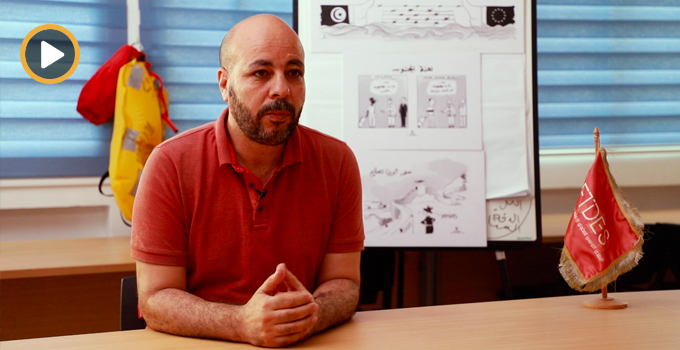
On August 1, 2012, the Tunisian Committee on Rights and Liberties (one of the constitutional committees charged with drafting the Tunisian constitution) voted in controversial new language that promises to protect women’s rights as ‘man’s partner.’ Selma Mabrouk, a deputy from the ideologically centrist Ettakatol party (TKTL) is a member of the committee. After the vote was taken, she published a rather frustrated Facebook note. The note was titled, Mauvaise journée à la commission droits et libertés [A bad day at the Committee on Rights and Liberties].
The clause reads as follows*:
The state guarantees the protection of women’s rights and gains, following the principle of complementarity with man, their roles being made complete within the family structure, and as man’s partner in developing the country. The state guarantees equal opportunity for women in all domains. The state guarantees to combat all types of violence committed against women.
The clause was approved by a 12-8 vote, with 9 of those voting for the clause coming from the Islamist Ennahda party. Almost without fail, the party votes as a well disciplined block on most assembly votes.
Putting aside the crude, incondite language the clause uses, an awful injustice is done to a whole society when a country’s constitution deems it apt to define a woman and her rights as complementary to man’s existence. The real debate should not be centered on women’s rights. Instead, it should focus on human, citizen rights. Relegating the woman’s role as complementary to that of a man’s could have serious effects on generations to come. The clause insinuates that women cannot stand alone as complete and that they are dependent on men.
Countless philosophers, psychoanalysts, and historians have defined men as human beings and women as females. Man is the model human, whereas woman can only hope to one day become or relate to one. Today, in the 21st century’s post-modern framework, will we fall in the same trap?
By defining women as complementary to men, we rob from the potential of Tunisian women both in society and within themselves. Where, tell me, does the constitution mention men as women’s “complementaries”?
Despite being voted on and approved in the committee, the clause is still a proposition. Each committee’s final work must go through a centralized coordination committee and must be voted on once again in the assembly plenary.
Representative Mabrouk’s note went viral on social networking sites such as Facebook and Twitter, and citizens were quickly made aware of the polemic. The virtual outrage expressed in response to the clause leaves one with hope. Whereas the majority of tweets about the clause were rather sarcastic (the hashtag #complementarité was trending on Tunisian Twitter accounts), there was an undercurrent of serious concern. Of all aspects of the constitution that Tunisians were worried about, women’s rights was the last on people’s minds. The gains that women have acquired in Tunisia are admittedly unmatched in the Arab world, and Tunisians are proud of that.
One assembly member from the center-left Congress for the Republic (CPR) party, which is part of the ruling coalition with Ettakatol and Ennahda, voted for the proposition. This created a lot of noise within the party’s internal chambers, especially among the youth. The clause was originally a proposition from Ennahda, and it seems to be almost exclusively supported by its victors — not saying much as the Islamist party does make up the assembly’s plurality.
Let us reference Simone De Beauvoir’s definition, as simple as it seems, of woman: “For us, woman is defined as a human being in quest of values in a world of values.”
If only the assembly members who voted for the clause would understand this!
*Rough translation from the Arabic.





[…] activist Wafa Ben Hassine confirms this sentiment in an article in Nawaat: “Of all aspects of the constitution that Tunisians were worried […]
Reading these news from Tunisia makes me feel upset and discouraged. I’ve lived in Tunisia in 2007 and 2008, I was so positively impressed how tunisian women were free in their choices except the ones coming from illitterated families. I thought that ignorance was the engines of islamists’ oppression but this sad evolution of the debate upon human rights shows that the deep and ancestral ‘machist’ feeling are so rooted in the soul of a cospicous majority of tunisians that I see hard times to come for the women. I remember that my mother-in-law (I’m married to a tunisian) claimed that ‘ignorance is the way to happiness’. No chance of emancipation if the majority of women themselves agree with the necessity to be considered only complementary to men; it is necessary to them to gain happiness! Sad but true
[…] Tunisian Assembly: It’s a Man’s World, but Women Can Help! 03 August, 2012 // Blog […]